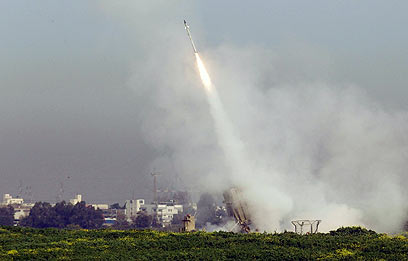When we were young, we viewed the events surrounding us in black and white. Looking to categorize the confusion surrounding us, we searched for some level of simplicity in order to make some sense of the world. Our children are no different.
And yet, as we grow older we recognize that life is not always (actually almost never) black and white. We are often forced to decide between two competing values, both of which are good, or bad.
To my mind, Megillat Esther represents a perfect example of this phenomenon. At first glance, when we read the story of the Megillah, everything seems straightforward. There are heroes (Mordechai and Esther) and a villain (Haman). The "good" people do the right things, while the evil ones come dangerously close to genocide. Yet, when we take a deeper look at the Purim story with the assistance of the Midrash, we find that often the choices our heroes made were not at all clear at the time, and that they were forced to make difficult and agonizing decisions. I'd like to one example from the Megillah that I believe represents a good springboard for a broader discussion with our children about the choices that Mordechai and Esther face, and how not everything is as black and white as it seems.
Esther's Challenge
When Mordechai learns of Haman's plot to destroy the Jewish people, he rushes to the palace instructing Esther to approach the king and beg him to save the Jewish people. Esther demurs, suggesting that she wait until Achashverosh calls her himself. After all, everyone knows that anyone who appears before the king uninvited is subject to immediate execution. Mordechai insists that she not delay at all, telling her,
אַל-תְּדַמִּי בְנַפְשֵׁךְ, לְהִמָּלֵט בֵּית-הַמֶּלֶךְ מִכָּל-הַיְּהוּדִים. כִּי אִם-הַחֲרֵשׁ תַּחֲרִישִׁי, בָּעֵת הַזֹּאת--רֶוַח וְהַצָּלָה יַעֲמוֹד לַיְּהוּדִים מִמָּקוֹם אַחֵר, וְאַתְּ וּבֵית-אָבִיךְ תֹּאבֵדוּ; וּמִי יוֹדֵעַ--אִם-לְעֵת כָּזֹאת, הִגַּעַתְּ לַמַּלְכוּת.
Think not that you shall escape in the king's house, more than all the Jews. For if you remain silent at this time, then will relief and deliverance arise to the Jews from another place, but you and your father's house will perish; and who knows whether you did not come to royal estate for such a time as this?
In other words, "Go now. Don't delay, even for a moment."
And yet, was Esther's request so strange? Why indeed should she risk her life if the king was scheduled to call her soon? After all, Haman's plan was scheduled for almost a year later (it was Nissan, and the slaughter was scheduled for the following Adar). What's the rush? Moreover, the question grows even more complicated when we consider the relationship between Mordechai and Esther. Megillat Esther describes the relationship between Mordechai and Esther as אשר לקח לו לבת – "whom he took as a daughter". In essence, he adopted her. Yet, the Gemara (Megillah 13a) famously notes that, אל תקרי "לבת" אלא "לבית" – "Don't read it [that he took her as] 'a daughter'; rather [he took her as] 'a home'". According to the Gemara, Mordechai didn't just adopt Esther; he married her.
Until this point, every interaction that she had with the king was involuntary. Halachically, she was not responsible for the events that were beyond her control. If so, to approach the king on her own meant that she was voluntarily breaking the strictest laws of Judaism against immorality and adultery.
Considered from this angle, what indeed was the rush? Would it be so bad for her to wait a few more days? Even if we agreed that it was proper and appropriate to commit the worst types of sinful behavior to save the entire Jewish people, would that still be true if it was just a question of scheduling? After all, Esther would have eventually met with the king. Was it so important that she do so immediately?
Mordechai certainly thought so, and pressured her to act without delay, despite the halachic ramifications. I wonder whether a modern-day Esther, had she sent a quick hidden text message to a Gadol today, would have gotten the same message.
Modern Day Ramifications
The issue isn't that foreign to us, even today. The State of Israel faces adversaries and enemies who harbor the same desires as Haman to end the existence of the Jewish people. While we don't often think about it, our country asks young men and women to hide their true identities and commit sinful acts to protect and defend the Jewish people. Would we agree with Mordechai's psak today if it meant preventing a terrorist attack?
And, on a far more personal level, what if the Mossad knocked on our door, claiming that our daughter was the perfect candidate for a dangerous covert operation. Would we, as Mordechai did, agree to allow our beloved children – or even our wives – to engage in such behavior?
Things really are not as black and white as they often seem.











